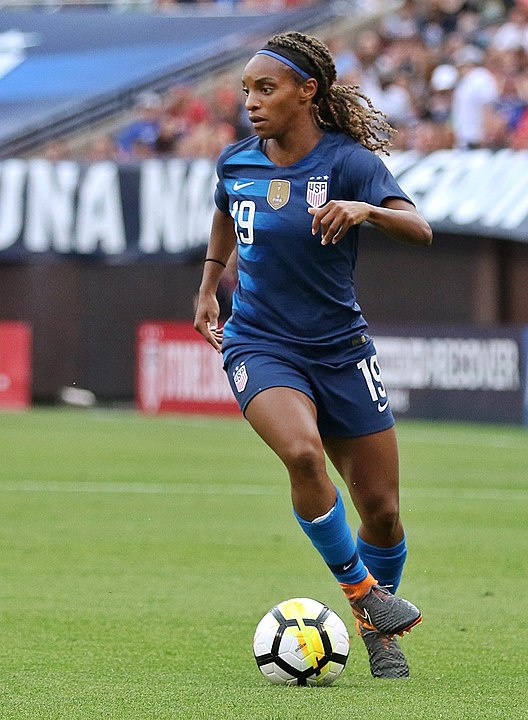Leveling the playing field with the ERA for Women in Sports
February 04, 2026

By Ava Lee-Green
The 2023 FIFA Women’s World Cup is underway in Australia and New Zealand! The expansion from 24 to 32 teams this year, including eight teams making their WWC debuts, is a testament to the progress made in women’s sports. And, with the U.S. Women’s National Team (USWNT) aiming to make history by becoming the only team to win three consecutive Women’s World Cups, it is essential to take a step back and learn about their leadership in the fight for equality on and off the field.

Despite soccer not being the most popular sport in the U.S., the USWNT has been one of the best in the world since its founding in 1985. So how do the 'Stars and Stripes' continue to outrank their European and South American counterparts? The answer can be found in the systems and legislation that protect and empower girls and women in the U.S.
Traditional European soccer academies, in which 10-18 year-olds train in professional environments to have a career in the sport, have historically only allowed boys. Although some academies have begun training girls, progress has been relatively slow due to the male-dominated culture that has been cultivated around soccer.
Because of laws like Title IX, which prohibits sex-based discrimination in school and youth programs, girls in the U.S. have the same opportunities in sports as boys. This allows girls to start developing their skills and competing at a high level from a young age. Young players like Alyssa Thompson (18 years old) and Trinity Rodman (21 years old) are prepared to play at such high caliber, like the World Cup, because they had the opportunities to grow as girls. It is clear from this case that uplifting minorities via legislation can lead to incredible success and progress.
Despite their major success on the international stage since they first won the World Cup in 1991, they have been fighting for equal pay. After being crowned World Cup Champions in 2011, the USWNT only received $1.8 million to split among the players. In contrast, the men’s team received $5 million the year before, despite only making it to the Round of 16.

In early 2019, the USWNT filed a gender discrimination lawsuit against the U.S. Soccer Federation. In the lawsuit, the players claimed that they were still being paid less despite now generating more revenue and popularity than the men’s team. The lawsuit was unfortunately dismissed by U.S. District Judge R. Gary Klausner in 2020, which allowed the discrimination to continue.
However, the USWNT was finally able to find success in 2022 when they filed a complaint at the Equal Employment Opportunity Commission. This led to the landmark agreement in which the U.S. Soccer Federation agreed to pay $24 million in backpay to the USWNT. The settlement also requires that the women’s team and men’s team are paid equally for friendlies and tournaments. This means that the USWNT received a share of the prize money for the men’s participation in the 2022 World Cup in Qatar, and the USMNT will receive pay for the World Cup that is currently happening. This incredible progress can serve as inspiration for not only other soccer teams but people fighting for pay equality around the world.
“I feel like we are a walking protest. The fact that we’re women professional athletes says that in and of itself. We’ve been feeling the inequality; we’ve been struggling with pay equality and sexism in sports.” – Megan Rapinoe
Tweet
“My goal is to show girls that I’m fighting so they don’t have to, so they don’t have to fight the same battles, so they don’t have to fight for wage equality of whatever it may be.” – Alex Morgan
Tweet
“It’s about doing the right thing, the fair thing. It’s about treating people the way they deserve to be treated, no matter their gender.” – Carli Lloyd
Tweet
“You think about the legacy that you leave behind, and I’ve been very fortunate to be part of a very successful team, but I think the fight for equal pay and respect is something that goes beyond the field.” – Becky Sauerbrunn
Tweet